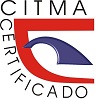Requeriments for the introducction of educational robotics in Cuban general educations
Requeriments for the introducction of educational robotics in Cuban general educations
Keywords:
educational robotics, cuban general education, requirementsAbstract
Educational robotics is seen as a tool for the formation of new generations, in a culture of scientific and technological innovation. The country’s leadership and the Ministry of Education (MINED) have proposed its introduction into the Cuban general education system. There is a sectoral project by MINED that in its scientific work determined that there are conditions in the country that can favor its introduction into general education, but these are insufficient for the success of this endeavor. In order to provide a clear framework with a holistic and interconnected approach and establish specific criteria that ensure a solid process for introducing educational robotics, the requirements for its introduction were determined. The aim of the presented article is to present the requirements for the introduction of educational robotics in Cuban general education. The work was carried out through a qualitative study, using theoretical methods including analysis, synthesis, and generalization to draw conclusions, systematization, and document analysis, as well as empirical methods among which surveys to collect opinions stood out. The article presents a synthesis of the requirements established in eighteen countries for the introduction of educational robotics and the study of the existing conditions in Cuba. The results include four main requirements that were validated by the Delphi method. These provide a starting point for introducing robotics into Cuban general education
Downloads
References
Castro, A., Aguilera, C., & Chávez, D. (2022). Robótica educativa como herramienta para la enseñanza-aprendizaje de las matemáticas en la formación universitaira de profesores de Educación Básica en tiempos de Covid 19. Scielo. Formación universitaria, 15(2),151-162. https://scielo.cl/dx.doi.org/10.4067/S0718-50062022000200151 .
Fontalvo, F., Santoya, A. D., Daza, L., Avendaño, L., Sánchez, L.; Ramos P.; Barrios, E.; López, M.; Osorio, G.; Rodríguez, M. & Moreno, V. (2018). Robótica educativa desde la investigación como estrategia pedagógica apoyada en TIC en la escuela. Cultura, Educación y Sociedad, 9(3), 82-921: DOI: http://dx.doi.org/10.17981/cultedusoc.9.3.2018.82
Gómez, H. (2022) Robótica educativa utilizando mBot en estudiantes de educación básica. RIDE. Revista Iberoamericana de Investigación y Desarrollo educativo 13(25) https://www.scielo.org.mx/scielo.php?script=sci-arttextepid=s2007-74672022000200024
González-Fernández, M. O., Flores-González, Y. A., & Muñoz-López, C. (2020). Panorama de la robótica educativa a favor del aprendizaje STEAM. Revista Eureka sobre Enseñanza y Divulgación de las Ciencias. vol 18. num 2. https://redalyc.org/doi.org/10.25267/Rev_Eureka_ens_divulg_cienc.2021.v18.i2.2301
Hernández, W., Vega, H. D., Cuéllar, J. A., & Gutiérrez, M. A. (2024). Tecnología para el aprendizaje: una reflexión desde la robótica educativa y STEM en el desarrollo de competencias del siglo XXI. Praxis, 20(3). DOI: http://dx.doi.org/10.21676/23897856.5864
Partido Comunista de Cuba. (2024). Actualización de los lineamientos de la política económica y social del Partido y la Revolución para el período 2021-2026. https://www.pcc.cu/sites/default/files/documentos/2024-02/actulizacion-lineamientos.pdf
Rosero, O.A. (2024) La Robótica educativa: Potenciando el pensamiento matemático y habilidades Sociales en el Aprendizaje. Emergin Trends in Education, 7(13). https://www.scielo.org.mx/scielo.php?script=sci_arttextepid=s2594-2840202400200129
Sánchez, F. (2022). ¿Qué es robótica? Su definición y significado. https://www.conceptodefinicion.de/robotica
UNESCO. (2015). Educación para los Objetivos de Desarrollo Sostenible Objetivos de aprendizaje. Organización de las Naciones Unidas para la Educación la Ciencia y la Cultura (UNESCO). París. Francia. ISBN 978-92-3-300070-4. https://academia.edu/36783925/Educaci%C3%B3n_para_los_Objetivos_de_Desarrrollo_Sostenible
León C. (2019) Los desafíos y oportunidades de incluir las tecnologías en las prácticas educativas: Análisis de casos inspiradores. UNESCO. IIPE. Buenos Aires. Oficina para América Latina. https://siteal.iiep.unesco.org/content/desafios-oportunidades-incluir-tecnologias-practicas-educativas
Loaiza, M.C; Encalada, J. & Delgado, J. C. (2024) Contextos Educativos Emergentes: Robótica educativa para estudiantes de Educación General Básica (pp.18-54). https://www.researchgate.net/publication/377974497
UNIR Revista. (26 de noviembre de 2019). Robótica educativa ¿qué es y cuáles son sus ventajas? https://www.unir.net/revista/educacion/robotica-educativa
Published
How to Cite
Issue
Section
License
Copyright (c) 2025 Mónica Díaz Otero, Alberto Diego Valle Lima

This work is licensed under a Creative Commons Attribution-NonCommercial 4.0 International License.
Horizonte Pedagógico es una revista Open Access, lo que quiere decir que todo su contenido es accesible libremente sin cargo para el lector o su institución. Los usuarios están autorizados a leer, descargar, copiar, distribuir, imprimir, buscar o enlazar a los textos completos de los artículos de esta revista sin permiso previo del editor o del autor, de acuerdo con la definición BOAI de open access. Los autores que publican en esta revista están de acuerdo con los siguientes términos: Los autores conservarán los “Derechos de autor” y garantizan a la revista el derecho de ser la primera publicación del trabajo. La revista se encuentra protegida bajo una licencia internacional de Creative Commons Attribution License Atribución 4.0 Internacional (CC BY NC 4.0), que permite a otros compartir (copiar y redistribuir el material en cualquier medio o formato) y adaptar (remezclar, transformar y construir a partir del material), para cualquier propósito, incluso comercialmente. Bajo las siguientes condiciones: atribución (usted debe dar crédito de manera adecuada, brindar un enlace a la licencia, e indicar si se han realizado cambios y no comercial — Usted no puede hacer uso del material con propósitos comerciales. Puede hacerlo en cualquier forma razonable, pero no de forma tal que sugiera que usted o su uso tienen el apoyo de la revista o el autor de la publicación.






















